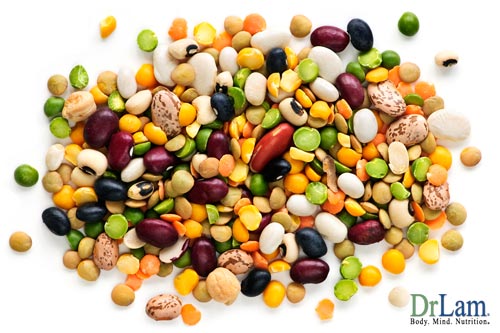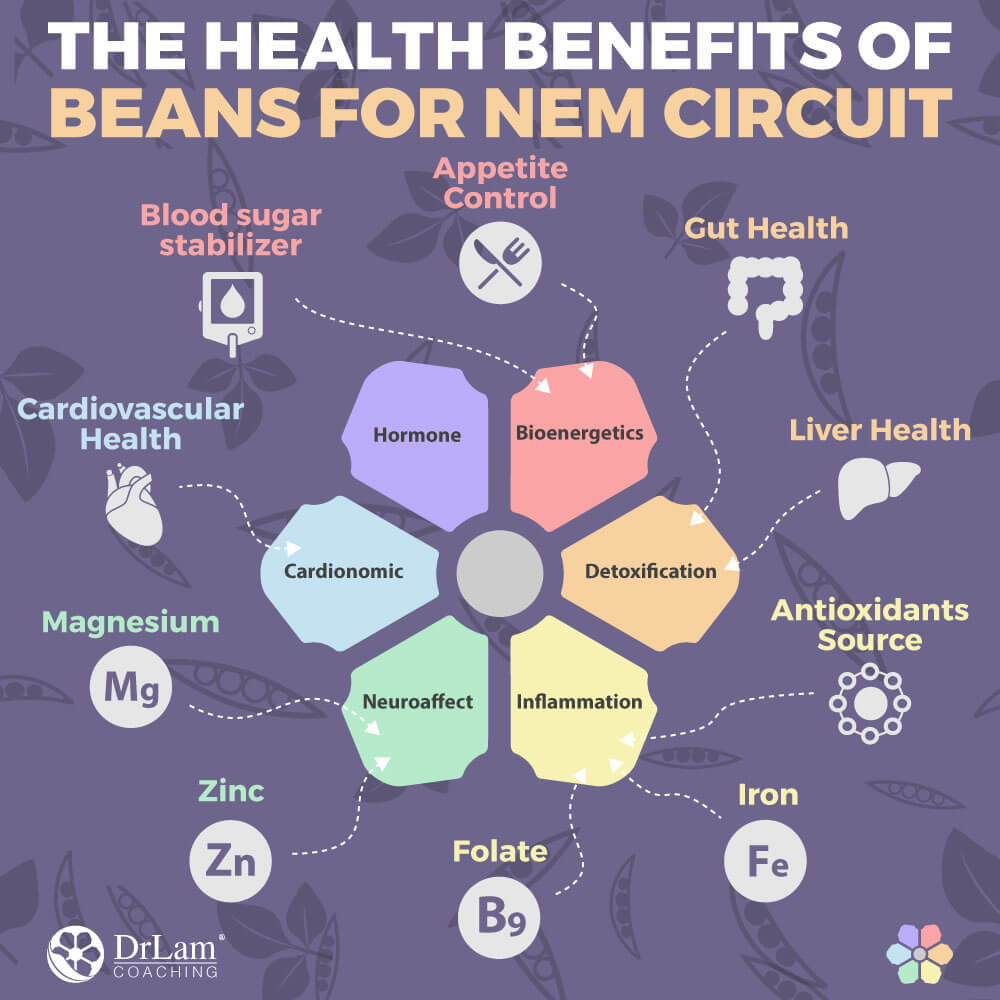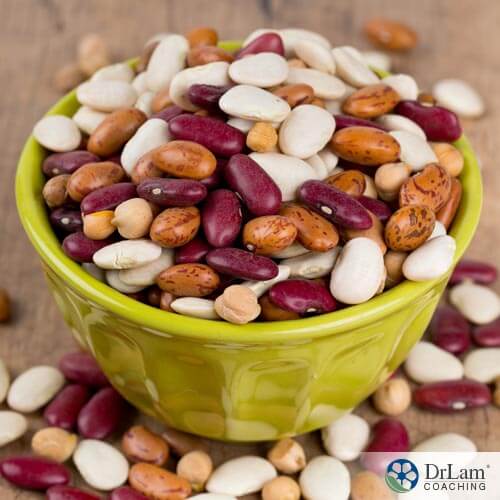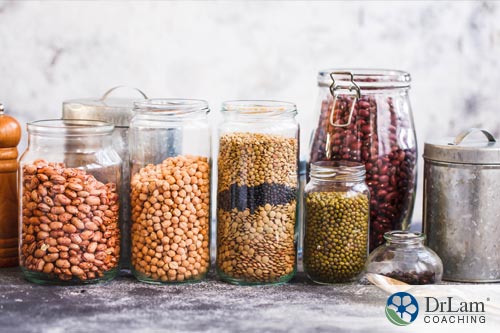 Although not everyone is aware of all the benefits of beans, this vegetable is a staple in many households and can be added to your diet in many forms. As a cheap source of protein, beans have the ability to bulk up any meal. Yet many people are unaware of the myriad benefits of beans when it comes to health.
Although not everyone is aware of all the benefits of beans, this vegetable is a staple in many households and can be added to your diet in many forms. As a cheap source of protein, beans have the ability to bulk up any meal. Yet many people are unaware of the myriad benefits of beans when it comes to health.
Beans have numerous benefits that some of you may not know about. So let’s go through a few of the amazing facts about the nutritional benefits of beans.
One of biggest benefits of beans is that they are high in amino acids—the building blocks of protein. Of all the bean types, however, the soybean is the only bean that contains all nine amino acids. To make a complete protein, i.e., one containing all the amino acids, beans can be combined with other sources of protein like dairy products, grains, nuts, and seeds.
Just remember, while amino acids are the building blocks of proteins and many of them are produced in the body, some of them can only be obtained via the food we eat. Protein is a slow release form of food—referred to as low glycemic index (GI) foods—that benefits the digestive system in many ways. Proteins and their essential amino acids are also the building blocks of new tissue and used by the body to repair cells. In addition, amino acids play a role in stimulating the production of neurotransmitters in the brain, including norepinephrine and dopamine. These two neurotransmitters aid concentration, promote alertness, and can increase your energy levels but can be depleted due to a lack of sleep or stress.
Lastly, compared to other protein sources, the protein found in beans is low-calorie and low in saturated fats relative to other protein sources.
The numerous vital nutrients are another of the many benefits of beans.
Folate, or folic acid, is one of the B vitamins associated with fighting inflammation and is involved in the development of the neonatal nervous system. Low folate levels are associated with numerous symptoms and conditions, such as loss of appetite, fatigue, feelings of weakness, heart palpitations, depression, dementia, vascular conditions, and Alzheimer’s disease, to name but a few.

Zinc deficiency is a worldwide concern. However, the majority of people are not aware that they are lacking this essential nutrient. Symptoms of a zinc deficiency include a decline in neurological function, a compromised immune system, diarrhea (particularly in children), allergies to food and environmental factors, hypothyroidism and accompanying hair loss, leaky gut, and acne and other skin conditions.
Iron is an important component of red blood cells, which are responsible for transporting oxygen throughout your body. Iron deficiency can lead to anemia and constant fatigue. Iron is also intimately linked to the body’s response to inflammation and its immune system functions.
Magnesium plays a role in fighting inflammation and is also needed for dopamine production in the brain. Low levels of magnesium are associated with muscle cramps, an increased risk of depression and anxiety, muscle weakness, fatigue, osteoporosis, asthma, high blood pressure, and arrhythmia.
Another one of the health benefits of beans is that they are rich in antioxidants—important for fighting excess free radicals which has been linked to cancer, aging, and inflammation.
 The prevalence of diabetes is increasing on a global scale. Research suggests that a diet incorporating beans could help you manage your blood sugar levels and may play a role in preventing diabetes. Beans are high in a type of dietary fiber that is digested very slowly in the body. This can help you feel fuller for longer and help to regulate your blood sugar and insulin levels, especially after a meal.
The prevalence of diabetes is increasing on a global scale. Research suggests that a diet incorporating beans could help you manage your blood sugar levels and may play a role in preventing diabetes. Beans are high in a type of dietary fiber that is digested very slowly in the body. This can help you feel fuller for longer and help to regulate your blood sugar and insulin levels, especially after a meal.
The fiber found in beans may prevent sugar cravings and give you that feeling of fullness for a longer period of time, thereby discouraging overeating and aiding in weight loss. Studies have also indicated that fiber may have a positive influence on your immune system and help combat inflammation.
According to research, one of the most important benefits of beans is linked to gut health. Adding beans to you diet could increase the numbers of healthy bacteria in your gut, improve your intestinal barrier function, support your immune system, and prevent inflammation and disorders associated with the gut.
Studies have found that the benefits of beans also include heart health, because beans may help lower your cholesterol—a strong risk factor for various heart conditions, heart attack, and stroke—and reduce your risk of developing coronary heart disease.
Research on the health benefits of beans shows they may help reduce your risk of developing fatty liver disease and may help preserve liver health.
Inflammation occurs in the body for many reasons. It could be in response to pain due to injury, as well as stress, allergies, a sedentary lifestyle, certain medications, toxins, and gut issues. In a similar way, many conditions have an inflammatory element attached to them, including diabetes, osteoporosis, heart issues, high blood pressure, skin conditions like psoriasis, arthritis, cancer, and even acid reflux. Unfortunately, adrenal fatigue is often overlooked as a potential cause of inflammation.
 One of the main side effects of stress, whether it is physiological or psychological nature, is inflammation. Three body systems are most affected by inflammation: the immune system, the gut, and the microbiome. However, it’s important to bear in mind that your body’s inflammation circuit forms an integral part of your NeuroEndoMetabolic (NEM) stress response system. This is your body’s automatic response to any kind of stress and part of this response is a massive increase in cortisol production by your adrenal glands, serving to prepare your body for difficult situations. At the same time, your blood sugar levels increase, insulin production is inhibited, the arteries leading to your heart are narrowed, inflammation is suppressed, and your heart rate rises. Once the stress is resolved, cortisol productions return to normal and other changes that may have occurred in your body are also reverted.
One of the main side effects of stress, whether it is physiological or psychological nature, is inflammation. Three body systems are most affected by inflammation: the immune system, the gut, and the microbiome. However, it’s important to bear in mind that your body’s inflammation circuit forms an integral part of your NeuroEndoMetabolic (NEM) stress response system. This is your body’s automatic response to any kind of stress and part of this response is a massive increase in cortisol production by your adrenal glands, serving to prepare your body for difficult situations. At the same time, your blood sugar levels increase, insulin production is inhibited, the arteries leading to your heart are narrowed, inflammation is suppressed, and your heart rate rises. Once the stress is resolved, cortisol productions return to normal and other changes that may have occurred in your body are also reverted.
On the other hand, long-term stress can have serious complications. If the changes mentioned above continue for an extended period of time, this can result in a number of potential health complications. Chronic inflammation, often owing to something as simple as certain lifestyle choices, can cause your immune system to become completely unbalanced, resulting in a variety of health issues. Addressing inflammation, or in other words, addressing dysregulation of your inflammation circuit, could therefore be one of the main issues to consider. Not only for successfully recovery from adrenal fatigue but to tackle any other inflammation-associated health conditions you may be experiencing.
It may be a good idea to stay away from beans if you’re going to be in certain public situations, since dried beans could cause you some embarrassment due to the risk of increased flatulence. Changing the water several times during soaking and cooking process could help alleviate the situation, but if in doubt, opt for fresh beans instead. People with irritable bowel syndrome (IBS), are often advised to stay away from beans and other legumes.
Certain beans, such as fava beans, may interact with medications for depression and raise blood pressure, while others may trigger an allergic reaction or migraine. If this happens to you, it’s best to stay away from that particular type of bean.
Lastly, dried beans are high in purine which increases uric acid levels. Therefore, if you suffer from gout, it might be good idea to forgo dried beans as they could contribute to the onset of a gout attack—but consuming green beans should be fine.
To summarize, there are many nutritious benefits of eating beans! If you want to calm an inflamed body, lose weight, or add more fiber to your diet, beans are the way to go!

Please note: If your curry seems too dry, you can add some extra water.
© Copyright 2012-2019 Michael Lam, M.D. All Rights Reserved.
The benefits of beans address numerous health-related issues. Many of these issues are symptoms of adrenal fatigue so it might be safe to say that while beans may not cure adrenal fatigue, eating them could help address many of the symptoms associated with this condition and provide adrenal support by calming inflammation.
